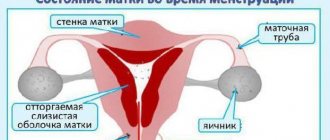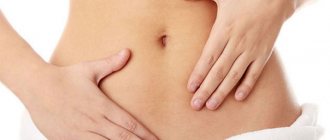This topic is very relevant in our time, since there are more and more girls who are athletic and watch their figure every year, but, unfortunately, most of them do not know how to CORRECTLY and competently lose weight so as not to harm their health and do not provoke hormonal imbalance. I decided to look at this problem in more detail due to the fact that quite a lot of girls write to me and ask me to tell me what to do if they have lost their periods , how they can be restored, what they need to eat, drink, etc. for this.
Dear girls, I ask you very much: the first thing you should do if this happens to you is to contact your antenatal clinic with your doctor. There is no need to look for information on the Internet and various weight loss groups, since everyone’s body is individual, and if the doctor prescribed one girl to take hormonal pills, and she now prays for them and advises everyone to take them, this does not mean that they are for you personally they will come and help. You may have a completely different reaction to this drug. Therefore, do not rush to listen to some Masha who supposedly has the same problem as you; in fact, she may have a completely different reason for the disappearance of her periods compared to you. So be careful with such advice!
As for general recommendations that are absolutely safe and will help you restore hormonal balance in the body and normalize metabolism, they exist. And now I will tell you about these methods in more detail.
So, if you have lost your period due to a low calorie diet (less than 1200-1000 kcal per day), then you need to deal with this situation as follows:
- Increase your caloric intake . The calorie content should be at least equal to your BMR (basal metabolic rate).
Formula for women: 655 + (9.6 * weight) + (1.8 * height in cm) – (4.7 * age)
- Adjust your intake of fats, proteins and carbohydrates.
Protein should be consumed - 2-2.5 g per 1 kg of body weight
Increase fat intake to 1-1.3 g per 1 kg of body weight
Carbohydrates – up to 2.5 g per 1 kg of body weight.
- Be sure to remember about your drinking regime during the day.
The daily water consumption rate is 40-50 ml per 1 kg of body weight.
- Reduce the intensity and amount of physical activity on the body, but do not eliminate it completely.
So, this is the main thing you should do when you lose your menstrual cycle after a long-term low-calorie diet or cutting.
Now let's talk a little about the reason for such a phenomenon as amenorrhea ( lack of menstruation ).
Why do my periods disappear when I diet?
Could it be that diet has a negative effect on your cycle? Yes, and many women face this problem even if they have lost a little weight and very gradually. There are several factors that can cause your period to stop coming. If you have several of them at once, it is safe to say that the reason for the delay in menstruation or its disappearance was the diet. Here they are:
- Strict calorie restriction. Especially in cases where the woman has already lost significant weight. You need to understand that with a diet of 400-600 calories, the body is essentially starving. And when exhausted, survival mechanisms are triggered; it seeks to get rid of all factors that require a lot of energy and vitamins to maintain. Therefore, menstruation stops, hair begins to fall out, and the structure of the nails becomes worse.
- Lack of microelements. A similar situation can occur not only with a strict diet, but also with proper nutrition, when the need for a certain vitamin is not met daily.
- No fat. There is still a misconception that if you greatly reduce fat in your diet, you will immediately lose weight. But if there is no normal amount of fat in the diet, the production of female hormones will become impossible. So the cessation of menstruation if there is a shortage of menstruation is quite expected.
- Not enough protein in the diet.
- The loads in the gym are too heavy. Any exhausting workouts, if performed constantly, will lead to disruption of the cycle.
- Stress. Worries, especially against the backdrop of serious dietary restrictions, also lead to a delay in menstruation.
How to get your periods back if they disappeared while losing weight?
Menstrual irregularities or complete absence of periods on a diet are a common problem. This can indicate either serious illnesses or that a particular diet and training program are not suitable for you, that there is too much stress in life, that the body is tired and needs rest. To solve a problem, you need to find and eliminate the cause that caused it. To do this, you will need to take blood tests and take a break from diet and exercise. Read the article for more details.
How to get your periods back if they disappeared while losing weight?
Many women on a diet experience some kind of menstrual irregularities. To avoid these problems, it is necessary to take into account the nutritional characteristics and characteristics of training against the background of the female cycle, and in order to return menstruation, you need to understand the reasons and urgently take action (calorizer). Increased cycles, irregular periods, or complete cessation of periods can either lead to or signal greater health problems.

First, you should make sure that an irregular cycle or absence of menstruation (amenorrhea) is not one of the symptoms of serious diseases, such as polycystic ovary syndrome, early menopause, pituitary tumor, or thyroid dysfunction. It is necessary to contact a gynecologist and endocrinologist to get a referral for blood tests to rule out these options.
Causes of menstrual irregularities
In most cases, those losing weight lose their periods for the following reasons:
- Too much physical activity;
- Too large and/or prolonged calorie deficit;
- Unbalanced diet;
- Reaching too low a body fat percentage;
- Chronic stress.
Too much physical activity can cause amenorrhea. This often happens when girls copy the training programs of professionals, try to set records in every lesson, or do too much cardio (several hours every day). The body experiences enormous stress and seeks to save energy through the function of procreation.

A strict or long-term diet leads to hormonal disorders - the level of stress hormone increases, the level of leptin decreases, and subsequently the level of sex hormones. In such conditions, the body strives to survive, rather than reproduce. Leptin is involved in the regulation of the reproductive system. The stronger and longer the calorie deficit, the lower the level of this hormone.
Eliminating entire food groups from the diet, such as red meat and dairy products, as well as severely limiting fats can lead to disruption of the female cycle. Fats are necessary for the production of hormones. Red meat contains iron, and dairy products contain calcium. Women's needs for these substances are higher than those of men, especially against the background of problems with the cycle.
A low percentage of fat and rapid weight loss also introduce an imbalance in hormonal levels. It is also worth mentioning leptin, the level of which in the body decreases with weight loss.
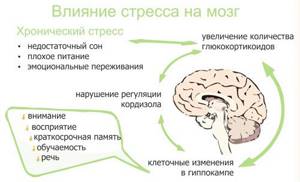
Chronic stress is one of the main factors of hormonal disorders. The nervous and endocrine systems regulate immune and reproductive functions. There is a lot of evidence of how prolonged emotional turmoil led to menstrual irregularities. There is the concept of “military amenorrhea,” when during periods of hostilities women lost their periods. Many women in their daily lives experience a level of stress that causes their body to “delay” the moment of ovulation. The situation is aggravated by a calorie deficit, training, lack of sleep, neuroses and complexes, and abuse of stimulants.
How to restore the menstrual cycle?
Ignoring the problem can lead to serious consequences - infertility, osteoporosis, cardiovascular diseases that develop against the background of hormonal disorders. First of all, you need to take blood tests for hormones and undergo an examination prescribed by your doctor to make sure that you are formally healthy. At the same time, create conditions in which the cycle can restore itself. As we know, prevention is the best treatment.
- Give yourself a break from training for 2 weeks. Increase your non-exercise activity – go for walks more often, try to be active;
- Recalculate your calorie intake from deficit to weight maintenance, eat within this calorie intake for two weeks;
- Balance the BJU of your diet;
- Each meal should consist of proteins, carbohydrates, fats;
- Get enough sleep;
- Get more rest, use stress reduction techniques;
- Drink a high-quality vitamin and mineral complex, pay more attention to the content of vitamins A and E, iron, calcium, selenium and iodine. Consult your doctor about choosing a vitamin-mineral complex and the need for additional supplements;
- Eat sea fish more often or include Omega-3 supplements in your diet.
After this, you can gradually return to training, but do the following:
- Reduce the intensity of physical activity;
- Recalculate your caloric intake taking into account available energy;
- On training days, compensate for the calories burned during exercise by eating up to the level of available energy.
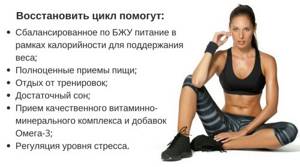
The recovery process will not be quick. It can take one month or four. It depends on how long ago the hormonal balance was disrupted. The faster you normalize your daily routine, nutrition and psychological state, the better it will be for your health.
Thus, in order to prevent menstrual irregularities, you should refrain from extremes in diet and exercise, control your stress level and take into account the characteristics of your body (calorizator). To restore the cycle, you will have to do the same, but this will require taking a break from training and diet. Perhaps this will take you one step further away from the result, but it will return the most important thing to you - your health.
What does this mean?
Not only the complete absence of menstruation, but also inconsistent (or scanty) discharge can lead to very serious problems in the field of women's health. It’s hard to believe, but it is a strict diet that often becomes the cause of the development of diseases that lead to infertility. Amenorrhea also threatens with such ailments as:
- Uterine bleeding (very dangerous, many negative consequences for the whole body!),
- Inflammation,
- Cyst formation,
- Endometriosis,
- Formation of fibroids, myomas and polyps,
- The appearance of malignant neoplasms.
If signs of the diseases described above have already appeared, you should definitely go to a gynecologist. You cannot delay it - this can lead to significant complications.
Stopping menstruation
If the body is forced to save energy for a long time, a woman will have to wonder whether her periods can disappear due to diet. The menstrual cycle is a litmus test for everything that happens in the body. Its failure means serious trouble in some area. If your period disappears while on a diet, a woman may observe other signs:
- Brittle nails and dull hair falling out in greater quantities than before. This indicates a lack of vitamin E and calcium. They are found in vegetable oils, nuts, fish, and seafood. When this food is excluded from the diet, deficiency of these nutrients is inevitable. And all of them participate in metabolic processes, which means they influence the production of hormones;
- Dry, flaky skin. Her appearance changes in this way due to deficiency of vitamin A, protein and iron. This happens when animal food is limited, because carotene is absorbed only along with fat. Plant foods cannot replace protein and do not allow iron to be absorbed in sufficient quantities. Therefore, you should not be surprised if your periods have disappeared due to diet;
- A decrease in the volume of FSH, LH and estrogens, which is obvious from blood tests for hormones.
Menstruation can stop not only due to lack of weight, but also due to its excess. Of course, regular overeating can hardly be called a diet, but such a diet leads to obesity. This is also a burden that falls primarily on the reproductive and endocrine systems. The cessation of menstruation in this case is not only a signal of ill health, but also a kind of respite that the body arranges for itself.
Consequences of prolonged absence of menstruation due to both overeating and nutritional deficiencies:
- Neoplasms of the reproductive organs;
- Uterine bleeding;
- Infertility.
How to restore your cycle after a diet
Amenorrhea can cause many diseases, and very serious ones. As soon as a woman discovers that her periods are delayed or have disappeared altogether after significant weight loss, she should immediately take measures to help restore menstruation.
To normalize the cycle, you should resort to several methods at once. But first it is necessary to “moderate the ardor” somewhat. If your periods have disappeared, this is a signal that you are doing something wrong on the diet, it is not suitable for you.
Return to normal KBJU
Everyone wants quick results, but it usually takes months and years to gain excess weight. Therefore, you should systematically get rid of extra pounds so that the problem of lack of menstruation does not arise. You don’t need to choose exotic diets; it’s better to calculate your daily caloric intake and protein, carbohydrates, fats on your own or using an online calculator.
You need to be prepared for the fact that at first after strict restrictions, the body will store food chaotically, even if the nutritional value of food per day does not exceed 1200 kcal. This is normal, as soon as he understands that you eat like this every day, without cutting your diet to the extreme 400 calories, the internal mechanisms will return to normal. You will begin a smooth and, most importantly, healthy weight loss. The cycle will be restored within 1.5-2.5 months.
failure of menstruation due to diet, what could this mean, help
I don’t go on a diet as such, but follow the following regime - sweets until 12 noon, in the morning porridge, pasta or other carbohydrates, butter, cheese. In the evening, mostly cottage cheese or other milk. or fruit. I eat dried fruits and nuts regularly. As a result, based on calculations, I consume 1200-1500 kcal daily. I have enough fat, but for some reason my periods failed. sometimes twice a month, sometimes they skip a month altogether. I told the gynecologist (when I went for a medical examination) but she did not pay attention to it. and she didn’t tell me anything. what should I do? What foods can I introduce into my diet or increase from what I eat? The lack of menstruation hasn’t affected me yet - I feel cheerful, I’ve been eating this way for about a year now.
I don't think it has anything to do with nutrition. When I suddenly lost 20 kg, I had a hiccup for one month, then everything returned to normal by itself. Now I, too, constantly limit myself, I eat little, but with my periods, everything is fine. Change gynecologist.
I also had a breakdown due to a strict diet, but my cycle just shifted by 10 days. I don’t know, but maybe I can donate blood, maybe my hormones have dropped suddenly
Maintaining drinking regime
Not only compliance with caloric intake is important, but also the amount of fluid you drink. You should not be guided by the advice to drink 1.5 liters per day, since the amount of drinking must be calculated individually for each person. For every kilogram you need up to 45 ml of water daily. It’s easy to calculate your norm if you multiply this value by weight.
Normalizing the water balance will allow you to restore your cycle faster. It should be plain water, not tea or coffee, without sugar or gas.
Nutrition during menstruation
The influence of diet on menstruation can be decisive for a woman’s well-being specifically during her period and her gynecological health in general. The fragile hormonal balance, which “rules” many processes in the body, is very susceptible to third-party influences. Therefore, every woman should know how to eat on critical days, so as not to upset this balance, alleviate the symptoms of PMS and the subsequent period, and not count the extra pounds gained during this time.
What to eat and drink
For a diet during menstruation, variety and sufficient quantities of foods are important. Menstrual fluid contains blood that must be replenished. Poor health and loss of strength on critical days are caused by an unusual iron deficiency for the body. The following will help increase hemoglobin:
- Buckwheat, oatmeal;
- Brussels sprouts;
- Apples;
- Beef and chicken liver;
- Eggs;
- Nuts;
- Fish, seafood.
The same food contains magnesium, a deficiency of which causes increased cravings for sweets. In addition, such products contain a lot of protein, which gives satiety and does not allow appetite to take over the mind and gain excess weight in 3-5 critical days.
Menstruation is accompanied by fluid retention, which causes swelling not only of the limbs, but also of the internal organs. And this adds pain and provokes general malaise. Therefore, it won’t hurt to supplement your diet during menstruation with decoctions of diuretic herbs, or even better, by eating seasonings:
- Dill;
- Parsley;
- Fennel;
- Basilica.
In addition to removing excess fluid, they have a lot of vitamins, which the body urgently needs during this period, as well as analgesic and sedative properties.
What should you avoid during menstruation?
Among the products loved by many women are those that can enhance all the negative manifestations of menstruation. Therefore, during critical days it is better to refuse:
- Salty. Such delicacies force you to drink a lot of water, which then lingers in the tissues, causing a feeling of fullness, increasing headaches, and worsening general well-being;
- Spicy. Seasonings and sauces cause a rush of blood to the pelvis, which makes menstruation more intense and longer, and increases abdominal pain. This is to the question: can diet directly affect menstruation;
- Fat. On critical days, the intestines, as a rule, rebel. This is expressed by flatulence, diarrhea, which will also increase pain and general malaise;
- Sweet. An increase in blood sugar provokes an increase in appetite. In addition, on critical days, many women find that their hair and skin have become oilier and pimples have appeared. Sugar plays an important role in these troubles. It interferes with the functioning of blood vessels, which causes headaches. It is also important that sugar participates in fermentation processes in the intestines, increases bloating, and increases discomfort in this area;
- Alcohol. Its use means dilation of blood vessels, that is, increased bleeding;
- Coffee. All components of the product increase the excitability of the brain, causing irritability, increased blood pressure, and headaches.
Choosing gentle training programs
It doesn’t matter how much excess weight a woman has, if she is already on a diet, then she needs to select the load rationally. Constant heavy training leads to a delay in menstruation, and if the kilograms melt too quickly, then to their disappearance. Overload can also be psychological, then the situation worsens even more.
You can choose any activity that will help you lose weight, the main thing is that it does not last long. For better results, various breathing practices, yoga, and massages are often included.
Diagnostics
When visiting a doctor, what most often comes to the fore for a woman is the cessation of menstruation and associated infertility. The doctor only needs to interview the patient to understand that this is secondary amenorrhea caused by functional hypothalamic-pituitary insufficiency due to weight loss.
Two main points from the anamnesis:
- a woman follows a cosmetic diet;
- coincidence in time of sudden weight loss and cessation of menstruation.
However, not all girls want to admit to the doctor their excessive desire to lose weight and thereby contribute to an erroneous diagnosis and the prescription of incorrect treatment. Therefore, it is important to tell it like it is! Upon examination, the gynecologist notes decreased nutrition, an atrophic uterus and mucous membranes of the genital organs.
Hormone tests indicate a decrease in LH, FSH and estradiol. Tests with Clomiphene and progesterone can be either positive or negative. A test with gonadotropins gives a positive reaction, which indicates a functional disorder of the hypothalamic-pituitary system.
On ultrasound, the ovaries are of normal size, the uterus is reduced, the endometrium is thin - up to 5 mm.
Folk remedies
The recipes described here are not a method of treatment. If they were used together with the other methods mentioned above and did not help within 2-4 weeks, you should immediately visit a gynecologist.
You can stabilize the cycle using folk recipes:
- Brew dried flowers and leaves of St. John's wort in the amount of 1 tbsp. l. in a liter of boiling water. Leave for an hour, strain. During the day, instead of tea, you should drink up to 500 ml of decoction.
- Take 1 tbsp. l. dried mint leaves, pour into a thermos and pour boiling water. Take the decoction up to 4 times during the day with meals.
- Take flax seeds every morning before meals in the amount of 2 tbsp. l. You can drink it with water or tea.
- Brew a level teaspoon of dry wormwood in 3 cups of boiling water. Drink 200 ml of decoction 3 times a day.
There is no need to be afraid of using decoctions. Very often, herbal medicine is prescribed by gynecologists themselves. This is one of the most accessible and gentle ways to restore menstruation. Specific recommendations can be obtained from your doctor.
Medicines
There are also situations when the results of an examination by a doctor show that everything is normal, but menstruation still does not return. In such cases, doctors select individual therapy based on hormonal agents. Usually, drug treatment is required if you have not had your period for several months, but, of course, you need to go to the hospital as early as possible.
You should absolutely not take any hormones on your own to restore your cycle. The main condition for taking such tablets is proper selection. Thoughtless use of medications can only worsen health problems.
How to lose weight without breaking your cycle
With proper weight loss, problems with missing periods do not happen. Before starting a diet, it is better to visit a gynecologist-endocrinologist to find out the general condition of the body and how stable the hormonal levels are. If you lose weight under the supervision of a specialist, then the likelihood of cycle disruption is minimal.
Here are some tips that doctors give for healthy weight loss:
- Calculate your allowance for carbohydrates, proteins and fats and do not reduce their amounts.
- If you want to continue losing weight, then subtract 200-350 calories from your daily calorie intake. Yes, you won’t be able to lose weight quickly, but you won’t lose your period.
- Include only healthy proteins, complex carbohydrates and fats in your diet. These are any types of fish, poultry, lean meat, cereals, fruits and vegetables.
- Move and engage in different types of physical activity every day. But training in general should not be long and exhausting.
- During critical days, it is advisable to increase caloric intake by 100-150 calories so that the body can easily replenish the lack of energy. On these days, it is advisable to take an additional vitamin tablet.
- It is important to avoid stress and get enough sleep.
- During the diet, you should periodically take multivitamin complexes. Most often, there is a lack of vitamins B, A, E, D, as well as iron, calcium and zinc.
A balanced diet and careful attention to your health - these postulates should become the rule if you want to lose weight. After all, when we decide to lose weight, we want to become healthier and more beautiful, and not to acquire even more problems and diseases.
Missing periods after losing weight - what to do
When there is a problem with menstruation after long-term weight loss, you need to reconsider your diet, for example:
- Meats include beef and lean pork.
- In order not to overload the body, you should include only one new product daily.
- You can restore vitamin deficiency after losing weight with the help of vitamin complexes, which can be bought at any pharmacy.
- Drinking also plays an important role in restoring menstruation: it is important to drink at least two liters of water per day.
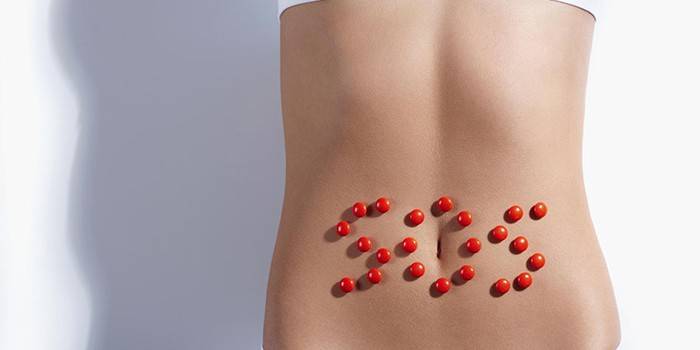
What is amenorrhea
Amenorrhea is the cessation of menstruation for two or more cycles. The reasons may lie in genetic abnormalities, psychosomatic problems, or peculiarities of biochemical processes. Temporary cessation of menstruation in girls can be not only due to an incorrectly chosen diet when losing weight, but also due to stress, emotional state, nervousness - all this affects menstruation. The whole body suffers, nails may peel, hair may fall out, and skin may fade.
The next reason for the absence of menstruation may lie in injury to the lining of the uterus, as well as tumors, congenital anomalies of the female reproductive organs. Irregular periods can also be caused by anorexia; this occurs in girls under the age of 17, and in women under 45 years of age. The reason may be grueling training, daily stress in the gym. How to get your period back after losing weight? It is important not to put off the problem, consult a gynecologist, and based on the tests, he will prescribe individual treatment.
Reasons for lack of menstruation
The reason for the absence of menstruation can be either obesity or anorexia. In both the first and second cases, hormonal disruption occurs, metabolic processes are disrupted, and amenorrhea occurs. Fat cells help androgens convert into female sex hormones. Due to the presence of excess weight in such women, the level of male sex hormones is 3 times higher than normal, which can lead not only to hirsutism, but also to infertility. If you do not consult a nutritionist, you can harm your health: excess weight aggravates the problem of hormonal balance of estradiol and estrogen.
Menstruation irregularities are also observed with severe weight loss: a lack of fat cells is formed. This leads to the fact that it is difficult for a woman to become pregnant, anovulation and amenorrhea occur. A critical amount of adipose tissue affects the mechanism of puberty in girls. It is important to stick to a weight that is optimal for a given height. In such women, there is a constant change in estrogen levels depending on the cycles, and in obese women this hormone is always off the charts.
